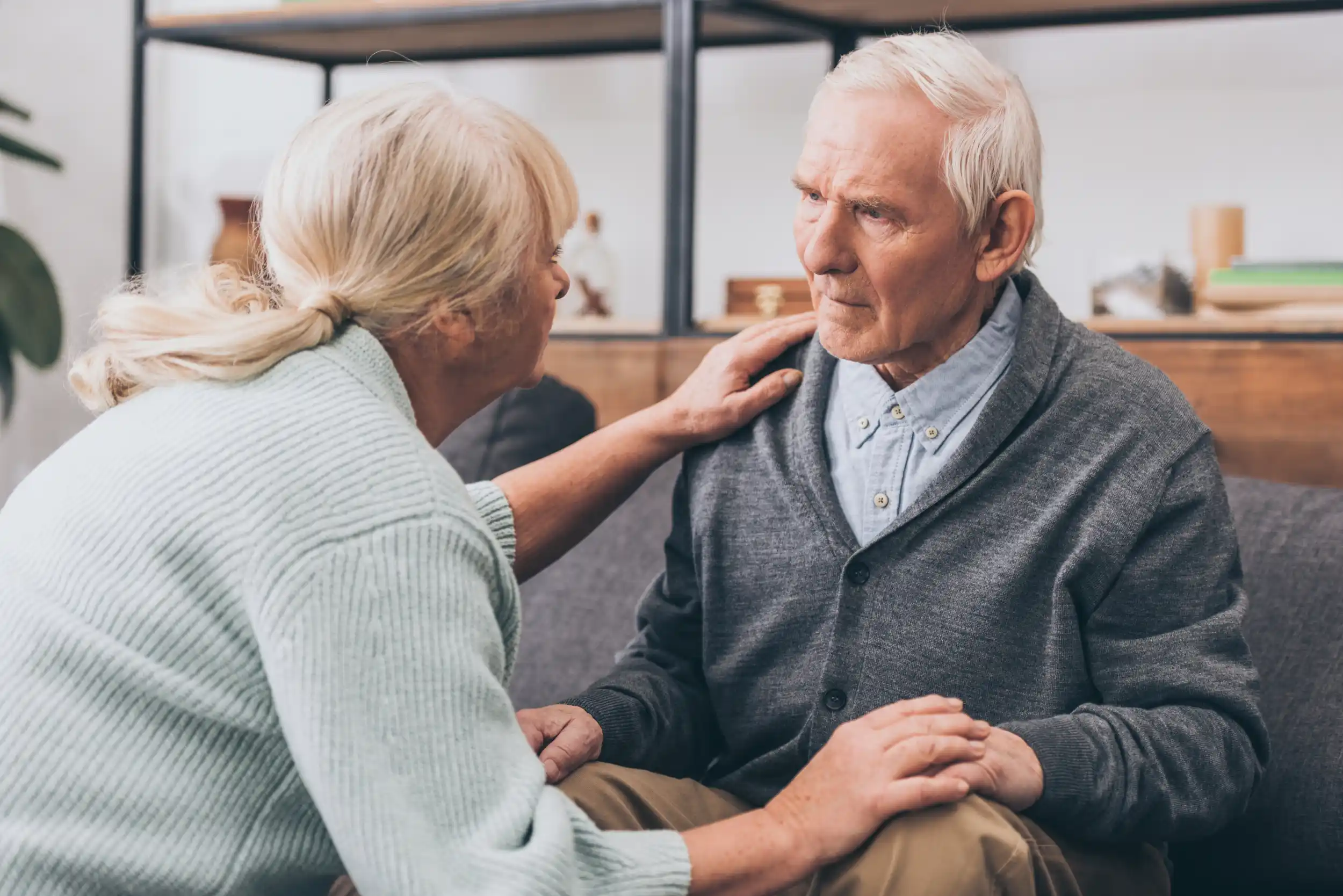Coping When a Loved One with Dementia Doesn't Recognize You
- February 25, 2024

Coping When a Loved One with Dementia Doesn’t Recognize You
Experiencing a loved one who no longer recognizes you due to dementia memory loss can be heart-wrenching. It’s a common but challenging aspect of dementia care, often leaving caregivers and family members feeling lost and grief-stricken. This article offers guidance and coping strategies to help you navigate this difficult phase of dementia care.
Understanding Dementia-Related Memory Loss
Dementia memory loss is more than just forgetting names or faces; it’s a decline in cognitive function that can alter perception, personality, and the recognition of loved ones. Dementia, including Alzheimer’s and other types, affects the brain areas responsible for memory, thinking, and behavior. As the disease progresses, memory loss intensifies, often leading to moments where a loved one may not recognize family members.
Emotional Impact on Families and Caregivers
- Navigating Grief and Loss When a loved one with dementia stops recognizing you, it can trigger a profound sense of loss and grief. It’s crucial to acknowledge these feelings as a natural part of the caregiving journey. Grieving the loss of your loved one’s memory while they are still alive is a unique form of sorrow, often referred to as ‘ambiguous loss.’
- Dealing with Emotional Reactions Feelings of sadness, frustration, and even anger are common. Caregivers might feel rejected or believe that they are no longer important to their loved one. It’s essential to understand that these emotional responses are a normal reaction to a painful situation.
Strategies for Coping
- Focusing on Non-Verbal Communication As dementia progresses, non-verbal communication becomes increasingly significant. Maintain physical contact through gentle touch, smiling, and eye contact. These actions can convey love and comfort, even when words fail.
- Creating a Positive Environment Strive to create a soothing and positive environment. Play familiar music, share old photos, or engage in activities your loved one enjoys. These can sometimes spark recognition or, at the very least, provide a sense of familiarity and comfort.
- Seeking Professional and Community Support Joining a support group or seeking therapy can provide emotional relief and practical advice. Connecting with others who understand your experience can be incredibly validating and helpful.
- Educating Yourself About Dementia Understanding the progression and nature of dementia can help set realistic expectations and prepare you for changes in your loved one’s behavior and memory. Knowledge about dementia can also guide your responses and caregiving strategies.
- Taking Care of Your Well-Being Caregiver burnout is real. Prioritize your health and well-being. Take breaks, seek respite care, and engage in activities that rejuvenate you. Self-care is not selfish; it is essential for sustainable caregiving.
Facing the reality that a loved one with dementia no longer recognizes you is a challenging and emotional experience. However, with the right strategies and support, you can navigate this journey with grace and resilience. Remember, your love and care make a significant impact, even if it’s not always acknowledged or remembered. In the world of dementia memory loss, every moment of connection, no matter how small, is precious.
